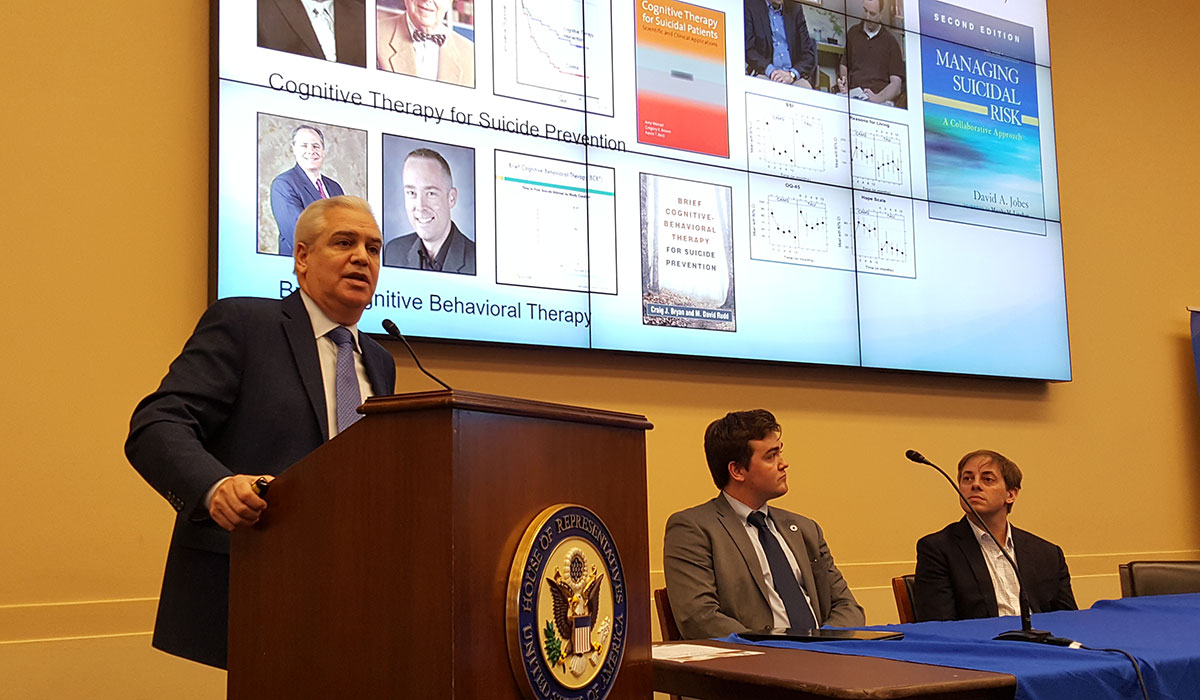

Expert psychologists on the science of suicide — David Jobes from Catholic University and Mitch Prinstein from University of North Carolina at Chapel Hill — presented their research on suicide prevention at a congressional briefing co-sponsored by the American Psychological Association (APA) and American Foundation for Suicide Prevention (AFSP) on Nov. 12.
Jobes presented as a member of the AFSP Public Policy Council.
The briefing was in regards to a proposed bill, Advancing Research to Prevent Suicide Act (H.R. 4704), which encourages more sponsored in-depth basic research on the “underpinnings” of suicide and how best to prevent it. Rep. Ben McAdams (D-Utah) and Rep. Anthony Gonzalez (R-Ohio) are co-sponsoring this bill and hosted the briefing noting the impact of suicide in their respective districts.
APA’s efforts to support the bill helped it to pass the House Science, Space, and Technology Committee on Nov. 14.
Psychology Professor David Jobes has dedicated more than 30 years to researching and implementing his CAMS approach to clinical suicide prevention. CAMS — the Collaborative Assessment and Management of Suicidality — is a therapeutic framework for treatment of suicidal patients. The method quickly reduces suicidal thoughts (in 6 to 8 sessions) and reduces overall symptoms of distress, depression, and hopelessness.
“CAMS is currently engaged in funded clinical trials to investigate its effectiveness with suicidal patients in the US and other countries,” Jobes said.
The clinician and patient engage in a “highly interactive” assessment process and the patient is actively involved in the development of their own suicide-focused treatment plan, according to the CAMS website.
Jobes has worked extensively with every branch of the U.S. military, and consulted with the Centers for Disease Control and Prevention, the Institute of Medicine of the National Academy of Sciences, the FBI, the NSA, the National Institute of Mental Health, the Department of Defense, and Veterans Affairs.